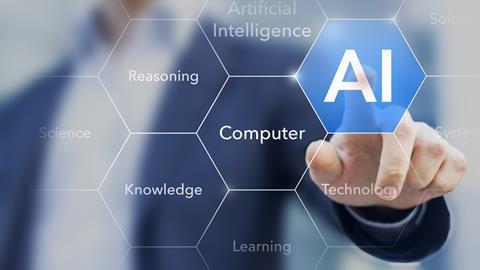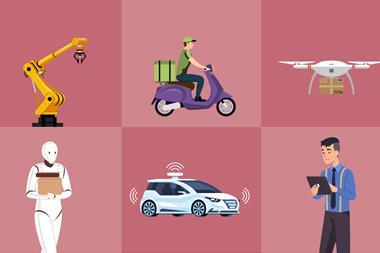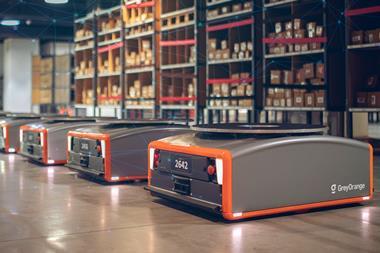Companies that embrace AI technology will reap the benefits, says Nigel Lahiri, general manager, EMEA, at GreyOrange
The UK is struggling with its worst labour shortage since 1997, with the Confederation of British Industry predicting the crisis will continue for at least the next two years. The dual constraints of the pandemic and Brexit on employees have meant many are leaving for organisations that provide better pay, work conditions and support.
UK supply chains are experiencing unprecedented delivery delays, food shortages and employee turnover rates. At the same time, customers expect faster deliveries and better engagement than ever; 45% of customers said they would not order from a brand again if their order did not arrive within two days. It seems an impossible task for businesses to balance customer satisfaction, with the pressures of the labour shortage.
As businesses are forced to consider transforming their workforce and operating models, many would do well to look at integrating technology such as AI and robotics into their supply chains as a way to satisfy both customers and employees.
Labour shortages
Businesses have been facing a labour shortage for years prior to the pandemic – a crisis that cost over £6.3bn. However, the recent lockdowns, transition to remote working and furloughs have only exacerbated this problem. Following the pandemic, labour shortages jumped to 54%, up from 38%, and turnover rates in manufacturing are up 15% compared to last year.
While this crisis is partly due to Brexit and the loss of a European workforce, it also reflects the often tedious and dangerous nature of those jobs retail, food service, and manufacturing, which are the industries most affected by the labour shortages. With a lack of manpower, businesses within those industries will experience slow order fulfilment and likely food shortages by Christmas.
AI and robotics – the light at the end of the tunnel
To mitigate this problem, businesses should look to technology for solutions. In areas where the labour shortage is a result of workers being reluctant to perform menial and often dangerous tasks, tools like AI and robotics can pick up the slack.
AI and robots can aid employers by performing the tasks staff cannot or will not do. By working consistently, 24/7, without breaks, robots and AI can improve efficiency, deliver quality, enhance supply chain management and reduce risk – ultimately resulting in supply chain optimisation. For companies, implementation of AI has been shown to increase productivity by 40%.
In doing so, AI and robots have clear financial benefits for businesses. For example, at GreyOrange, our AI-powered robots have helped retailers to reduce their labour costs by as much as a third, while also reducing order fulfilment time by as much as 50%.
The place of the employee
Automation and AI have often been seen to herald the death of the employee, making the workforce redundant. If they replace cashiers, waitresses and construction workers, where will those people go?
However, rather than replacing employees, AI and robots actually serve as tools to augment the productivity of existing workers. In this way, the two technologies are beneficial for continuity and employee retention. AI and robots can provide real-time guidance and training, as well as flagging safety hazards, which ultimately frees employees up to do less repetitive, low-skilled labour and focus their attentions on more sophisticated, nuanced tasks that require human judgement and supervision.
By working alongside employees, such as in detecting potential assembly-line defects, AI and robots can aid productivity and subsequently enable employees to gain tech skills. Thus, instead of removing workers, businesses can use AI and robots to redirect their attention to employee satisfaction and training their employees in digital skills to prepare for the future.
Businesses should not be responding to the labour shortage crisis by attempting to return to the past. Instead, it should be treated as an opportunity to use technologies such as AI and robotics to change how we think of work, and where we invest our time and energy in.
Nigel Lahiri is general manager, EMEA, at GreyOrange

Nigel Lahiri is responsible for leading GreyOrange’s push for a warehouse revolution in the region. This includes educating businesses on how artificial intelligence, machine learning and robotics can help them to build resilience, modernise, and future-proof their fulfilment operations.
Nigel will be appearing at Tech Week on November 4. Book your free place now.




























